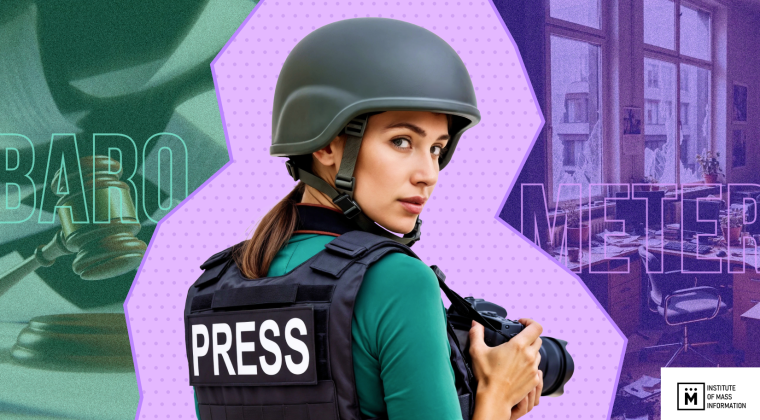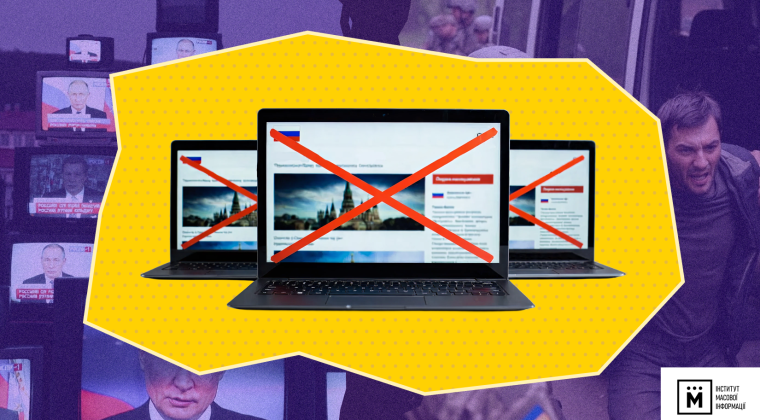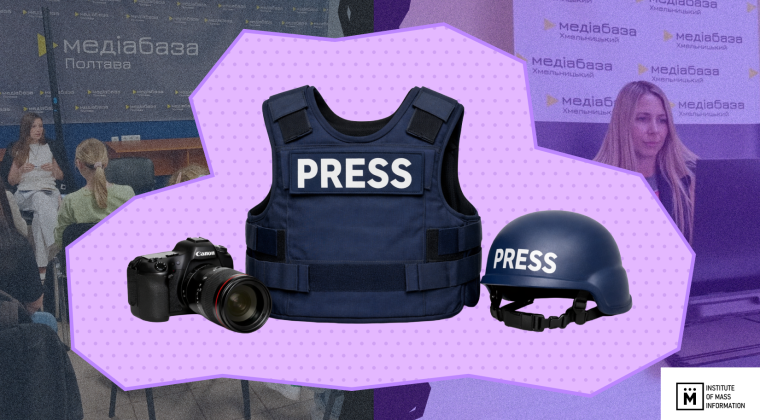On August 30, the Verkhovna Rada adopted the draft law “On media” in the first reading; the bill was faced with criticism from very different groups. The draft law covers all types of media, so the pros in some of its aspects are accompanied by the cons in others. It is generally impossible to give an unambivalent assessment of the document. But let’s try to address the key issues one by one.
The types of media regulated by the law
The draft law covers the media that are currently not regulated in Ukraine and do not have the status of media outlets. Namely, these are online media and on-demand media services. According to the lawmaker, the same law should also regulate the press, television, and radio (and news agencies as a category should switch to the press or online media status). And that is a problem.
The history of this draft law’s development spans almost 10 years. At first, it was conceived as a new version of the Law of Ukraine “On Television and Radio Broadcasting.” Whether it was possible to do without simple changes to this law is up for debate. On the one hand, the Western experience shows that it is possible to live by the laws developed back in the 19th century (with subsequent amendments and additions). On the other hand, few among those who apply the law in Ukraine know how to treat it as a living tool, and not literally. Over time, the VR’s specialized committee decided to include all types of media in the draft law. Although its basic structure, in my opinion, still seems to be cut to regulate audiovisual media specifically and somewhat ignores the other types. This is one of those debated points.
At the same time, it is obvious that online media need legal regulation. Currently they are only regulated by general norms about the dissemination of false information, criminal actions, etc. But, taking their growing influence into account, solving the issues of low-quality or even harmful information distributed by individual online publications, complicity in the shadow economy, and others with the help of the existing legal norms is quite difficult.
Neither online media nor the press have any particular desire to fall under regulation.
Risks of regulator dependency
It is planned to make the National Council for Television and Radio Broadcasting the regulator for all types of media. This is a constitutional body, half of whose members are appointed by the President, and the other half by the VRU. In the case of a monolithic pro-presidential majority, the regulator effectively falls under the control of the government. This problem is clear to everyone, but is currently impossible to solve. The two parties to appoint the National Council’s members are prescribed by the Constitution. The Constitution can not be amended under martial law. However, in order to guarantee the regulator’s independence and professionalism, it would be worthwhile to outline stricter requirements for candidates to the National Council and the procedure for their appointment while the draft law is being prepared for the second reading.
However, an incident has already occurred in this regard: several specialized committee members from the monolithic majority have made proposals for the draft law, which, among other things, suggest moving in the opposite direction – reducing the requirements for National Council candidates and cancelling the mandatory competition commission for the selection of candidates from the President (who clearly retains more freedom here than the Verkhovna Rada).
And in this regard, the critics of the draft law must be understood.
But now we have come to the second point around which the spears are breaking. The media community is wary of the National Council and media regulation in general being strengthened, although a strong and independent regulator is common practice in developed EU countries. Let’s remember that until this February, a significant part of the draft law’s critics were overt or covert pro-russian media and public figures (now a large part of them have changed their colours and became quiet), whose rhetoric at that time fit perfectly into the russian narrative about the “junta” in power in Ukraine.
Another part of the community is afraid of the new regulation irrationally, because of the censorship experienced during Kuchma’s time and the isntances of inappropriate behavior on the part of the current government, such as shutting down channels close to political opponents. However, the National Council and media legislation are generally poor tools for introducing censorship: even if the National Council is biased, it can only cause some trouble to the media that the authorities consider undesirable, but it will not be able to clear out the media space. In general, the big question is what can be done, for example, to YouTube channels – after all, you can not block the entire social network because of some individual channels on it. This applies equally to the “opposition” media and xenophobic content like RT.
What enabled our every next government to more or less control the media space before a large-scale invasion? The fact that the leading media (large TV channels at that time) are not businesses, but oligarchic appendages whose owners would often trade their loyalty to the government for some benefits in the business group’s main field of work. And at the moment, the problem of Priamy channel or Channel 5 (the names of the channels can be easily changed while the people in power are changing) does not lie in the regulation, but in the fact that someone in power (obviously not in the National Council) decided to “mute” them, contrary to all norms. In this case, an official’s desire to abuse their power, and not the presence / absence of any regulation, is the root cause. There are also multiple state inspectors and control bodies apart from the National Council (the STS, the NP, etc.), which, unlike it, are not even formally separated from the power vertical.
The main tasks of the regulator
Unfortunately, the National Council was too passive a regulator in 2014–2022. Their response to the barrage of pro-russian propaganda, xenophobia, and manipulation coming from a number of TV channels was sporadic, although the circumstances called for a much more proactive approach. Sometimes the regulator was more mandated, sometimes less. The channels close to Medvedchuk could have gotten sanctioned by the National Council many times, but were eventually closed by presidential decree.
Therefore, the essence of the National Council as an independent constitutional body is not to issue licenses and monitor compliance with broadcasting quotas (you do not need an extra-departmental body for this). The National Council is primarily a tool for preventing abuse of power in the media space (currently only on TV and radio).
What does the draft law give us in this regard? On the one hand, it provides much quicker and more powerful tools for combating russian propaganda. But on the other hand, it includes some purely decorative norms regarding the quality of domestic content, for the violation of which no accountability is envisioned (in particular, regarding objectivity / balance). If leaving this power to the National Council is so scary, then it would be possible to give them over to co-regulation whose mechanism the draft law introduces in other areas. This is a suggestion for the second reading.
Moreover, let’s remember how the European Union articulates its requirement for us to pass this draft law: “Tackling the influence of vested interests with regards to audio-visual media services.” Plus the implementation of the anti-oligarch law. And what does this draft law do with the oligarch infulence? The same complete freedom to “pamper” the desired politicians on the air and “crush” the competitors.
Finally, it is worth paying attention to one more point of backlash: the weakening of the norms that limit the russian influence on the media space. Quotas for songs in Ukrainian, which currently amount to 35%, will be increased to 40% in October. The draft law provides for a written binding demand as punishment for the media that violates the quota for up to 10% (that is, 4% of the total amount of songs, if the quotas are 40%). After five such demands, the violation moves to the “grave” category and is punished more seriously. So it turns out that the quotas are increasing, but the compliance with them will be more flexible and less controlled by the National Council.
The project’s approach to creating lists of russians who constitute a threat to our media space raises a lot of questions. In my opinion, the proposed criteria are too narrow, and these six months have shown us all that the russian federation is chauvinist not only as a state, but also as a society. At least until the territorial integrity of Ukraine is restored, we should limit (to the extent which can be excercised through editorial supervision) the media distribution of content whose creators are citizens of the russian federation or have lived in it for a certain period of time. The russian language can also be a criterion for identifying content from the russian federation by presumption, if there is no information about the creators.
Roman Holovenko for ZN.ua



